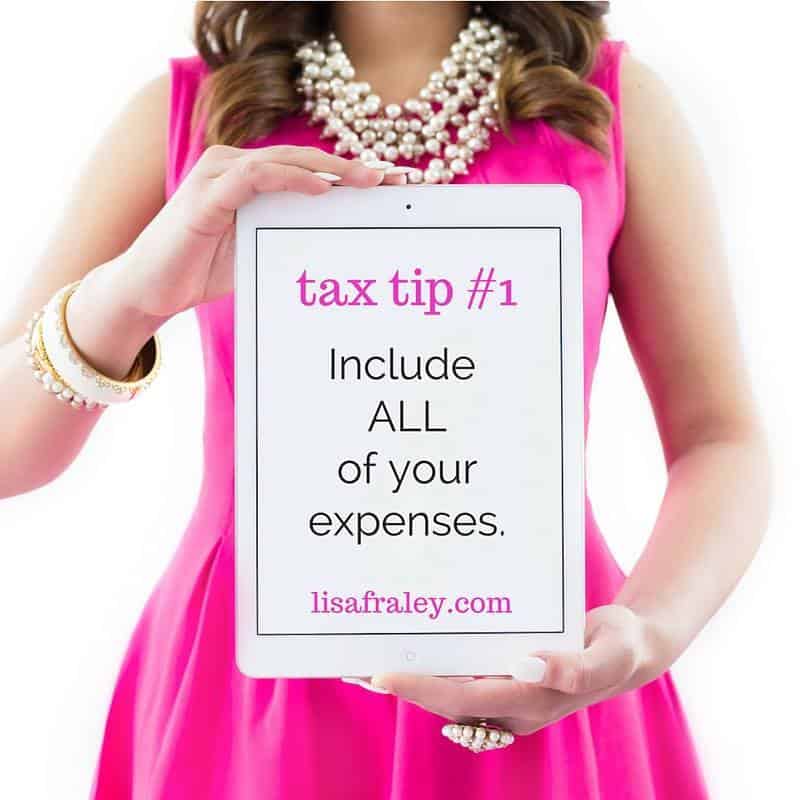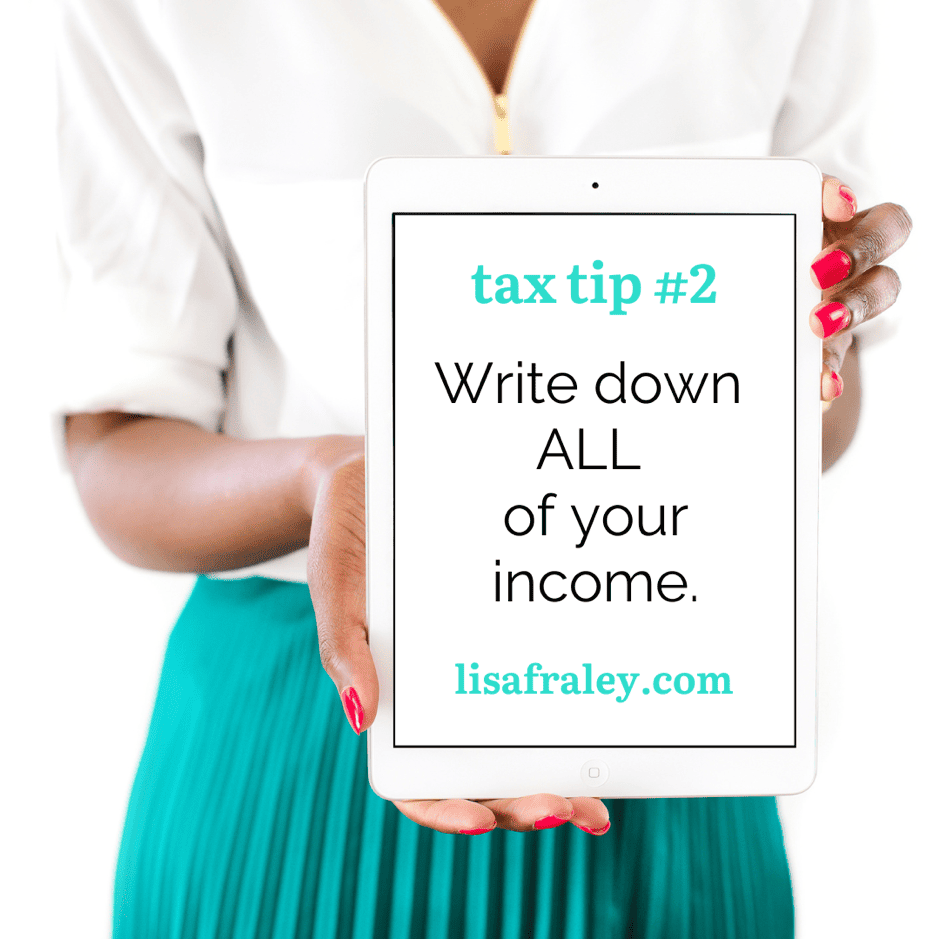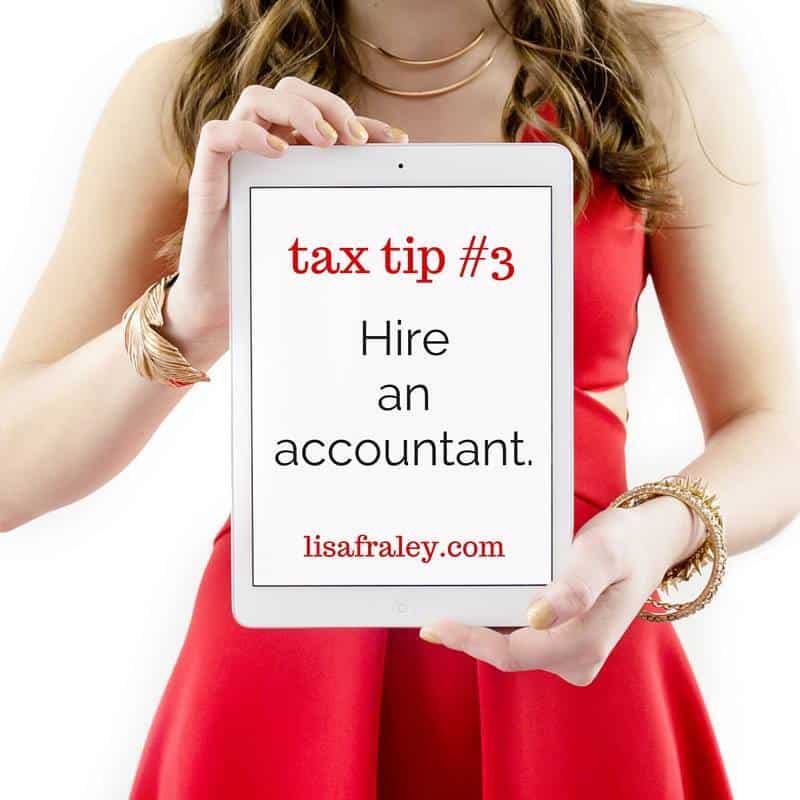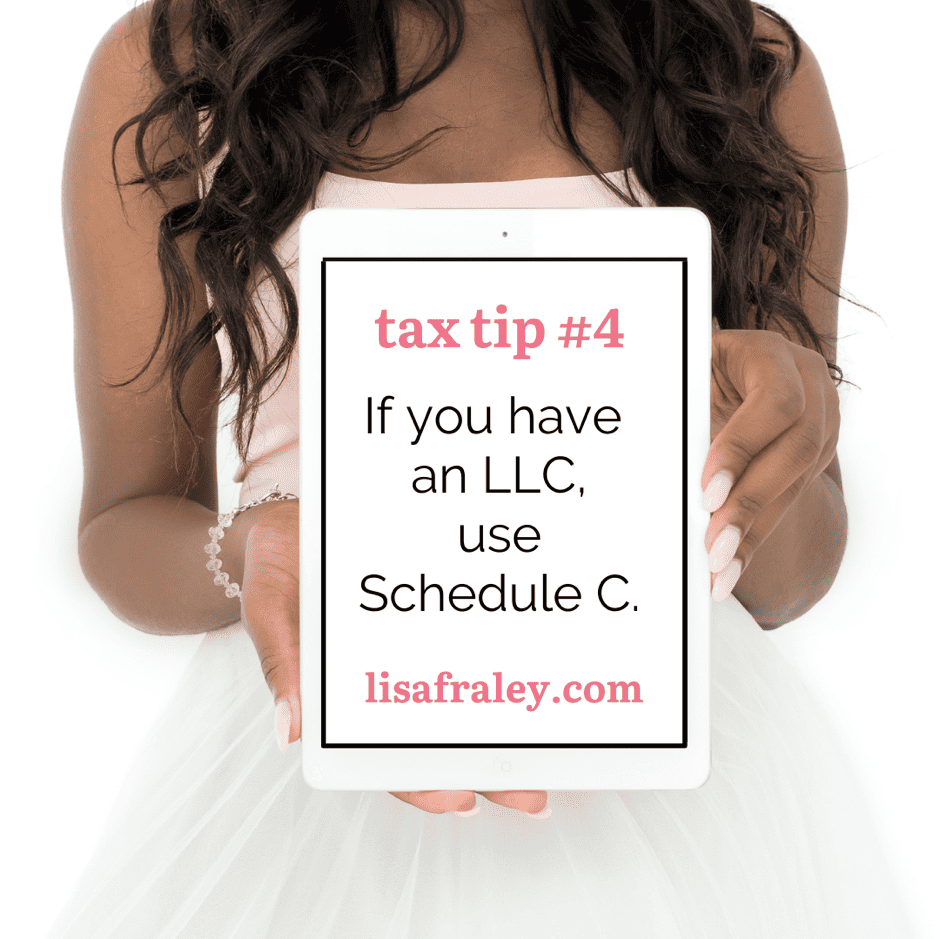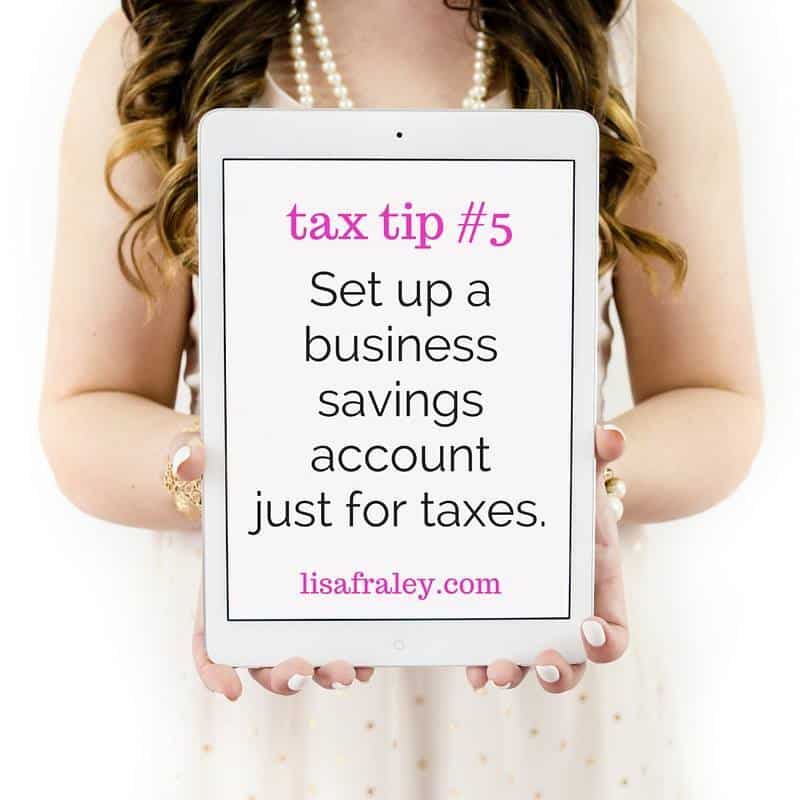My top 5 Tax Tips to save money this year
That’s why I’m sharing my top 5 Tax Tips to help you prepare your taxes…with lots of Legal Love™!
If you’re brand new to filing taxes as a business owner, these tips will really help.
If you’ve been filing biz taxes for ages, these tips are a good reminder for you (especially Tax Tip #1).
#1 – Include ALL of your expenses.
Write down all of the purchases for your business this year.
Here are some examples of what you’re allowed to include as legitimate business expenses on your tax return:
- website design & hosting
- travel to biz conferences, seminars, workshops, masterminds
- paid webinars, courses, programs, classes
- your own coaches
- paid marketing like Facebook ads, leadpages, etc.
- office equipment like computers, printers, cell phone
- office supplies like printer cartridges, paper, folders, pens
- meals with clients or other coaches for biz
- professional services like legal (yep!!), accounting, website or graphic designers
- LLC/S-Corp corporate registrations & biz license fees
- cost of DIY Legal Templates purchased from me ????
- mileage for biz-related purposes
- home office valuation (work with your accountant on this one though – it’s tricky!)
- items given away in contests and giveaways
- gifts for your team members (up to $25 per gift)
- charitable contributions
start up costs (before you even had your first client!) - and MORE! (check with your accountant first)
Your Action Step:
Get organized! Make a list. Check your Stripe and Paypal accounts, online platform, and bank statements for expenses. Find your receipts. Record ALL expenses in an Excel spreadsheet, Xero or Quickbooks – or hire a bookkeeper to help you.
#2 – Write down ALL of your income.
Make sure you add up all of the income you made last year in 2022.
Your income includes sales & commissions for things like:
- One-on-one coaching sessions, VIP Days, programs or projects
- Group programs
- Online courses
- E-books or other downloadable digital product sales
- Affiliate commissions
- Commissions from direct sales companies like doTerra or USANA
- Payments from joint venture partners for joint projects
- Speaker fees for paid speaking gigs
- Product sales for things like candles, journals, gifts, and artwork
- Consulting fees
- Book sales
- And MORE!
Your Action Step:
Make a list! Same as above, check your Stripe and Paypal accounts, online platform, and bank statements for payments from clients. Look over your client lists and jot down EVERYONE who paid you this year. Record ALL of your income in an Excel spreadsheet (or use Xero or Quickbooks – or hire a bookkeeper to help you).
*Never before recorded your income and expenses and need an easy system? Want sample Excel spreadsheets for your biz EXPENSES and INCOME that I use for my own business? E-mail my team and we’ll send them to you with LOVE!
#3 – Hire an Accountant.
You may be thinking, “but do I REALLY need to hire an accountant?”
Yes. Whether you are just starting out or you’ve been in biz for a while, working with an accountant to prepare your taxes is key.
If you’re a Sole Proprietor who’s working only with one-on-one clients or you have an LLC or S-Corp and a zillion offerings, it’s worth every penny to hire an accountant.
Why?
1. Accountants can help you take ALL the business expense deductions legally allowed. (I’m sharing my tax tips here but accountants have the FULL list of every biz deduction you can take.)
2. They can help you report your income correctly. (Even if you’ve only had a handful of clients so far, an accountant can help you know what you need to report.)
3. Small, home-based businesses are HIGHLY audited. If you’ve ever talked to anyone who’s been audited, it is a nightmare. Avoid an audit by working with an accountant to do your taxes correctly.
Your Action Step:
Hire an accountant.
If you have NO idea what questions to ask an accountant when reaching out to them, use my free checklist called “Top 10 Questions to Ask When Hiring an Accountant”.
#4 – If you have an LLC, use Schedule C.
If you have an LLC (taxed as an individual as opposed to an S-Corp), use Schedule C to report your biz profits and losses on your tax return.
Schedule C is included as an attachment to your Form 1040 that is due by April 15th (well, this year, the deadline is actually Tuesday, April 18th.)
Be sure to report all Expenses (Tax Tip #1) and your Income (Tax Tip #2) and get an accountant to help you (Tax Tip #3) so you’re maximizing those deductions and recording your income properly.
Don’t try to guess or go it alone – it’s worth every cent to have an accountant help you when it comes to your LLC.
Your Action Step:
Prepare your 1040 tax return and record your LLC income and expenses on Schedule C.
You can download Schedule C for free here.
#5 – Set up a business savings account just for taxes.
This is a tax tip that keeps on giving. It will help you EVERY. SINGLE. YEAR.
Open a bank account specifically for saving up money for taxes and move a chunk of your income into that account each month to dedicate taxes.
Your Action Step:
Go to your bank (or go online) and open a SAVINGS account and give it the nickname “Taxes”. At the end of each month, transfer ⅓-¼ of your gross income (before expenses!!) into your Taxes account and don’t touch it!
This is the money you’ll use to pay your taxes. (1/3 may be more than you need, but it’s better than coming up short and scrounging in your coat pockets and under the couch cushions looking for loose change to pay your taxes.)
BTW, make sure your “Taxes” account is separate from your business operating account that you use every day to buy supplies. (I like to call this one an “Operating” account.)
Super-Important: Keep your BUSINESS income/expenses SEPARATE from your PERSONAL income/expenses. This is the cardinal rule of business finances – “you’ve gotta keep ’em sep-ar-ated!”
(By the way, my very first year of full-time coaching, because I kept a separate Taxes account, at the end of the year I (shockingly) had a surplus – and I was able to contribute $10,000 to a retirement fund. I hadn’t even planned on contributing ANYTHING that year to retirement – heck, I just wanted to make money and pay all of my expenses! But, by putting money aside as I went along, I saved enough money for taxes, contributed to my retirement, and saved me from myself.)
Here’s to a smooth tax season – and saving money on taxes!
If you still want MORE about tax savings and setting up your business the right way, check out my DIY Legal Master Class on “How To Save Money On Taxes & Set Up Your Business Correctly”.


